#Mormon Pioneers Memorial
Photo


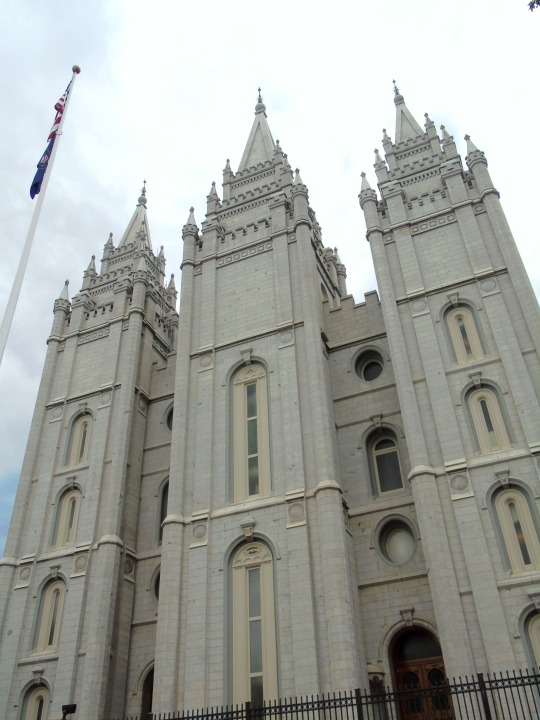


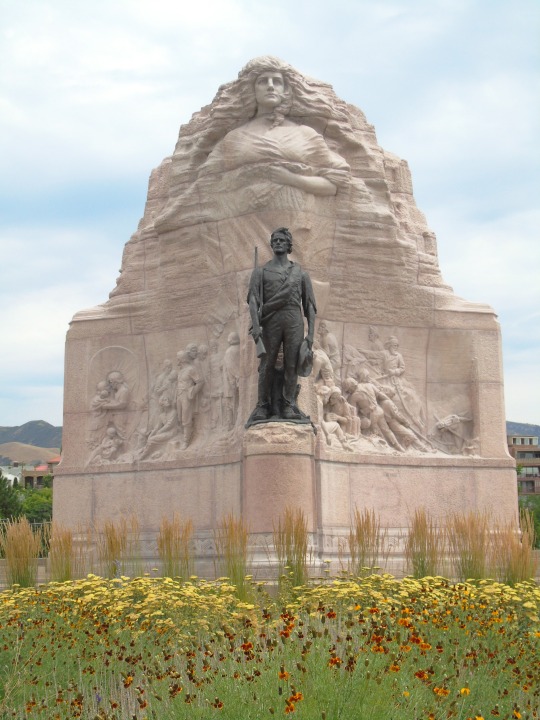
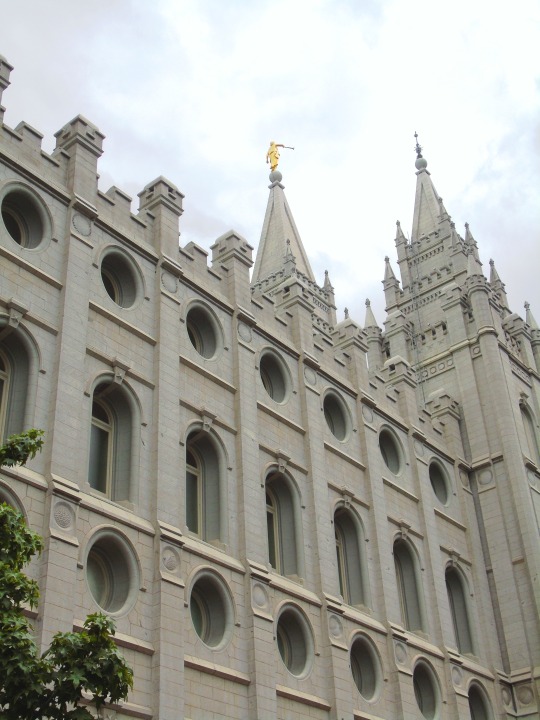
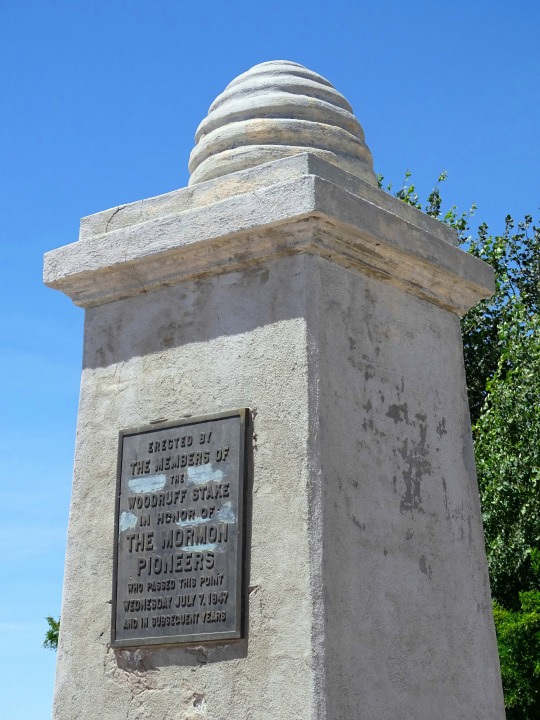
Five hundred Mormons left Iowa City for the Mormon Trail on June 9, 1856.
#Handcart Pioneer Monument by Torlief S. Knaphus#Salt Lake City#vacation#Salt Lake Temple#Mormon Battalion Monument by Gilbert Riswold#Utah#USA#Mormon Pioneers Memorial#Echo Canyon#original photography#summer 2017#2019#architecture#cult#cityscape#tourist attraction#landmark#Mormons#Mormon Trail#started#9 June 1856#anniversary#US history#Church of Jesus Christ of Latter-day Saints
0 notes
Text
hey, tumblrstake! I've seen several posts on here about how we wished mormons had more cultural traditions/holidays, so I want to share with y'all my family's memorial day tradition.
every year, about 300+ of my extended family gather in the podunk town of oak city, utah to take over the town hall for the weekend and then serve free breakfast to the town on monday morning. it's called the "edward partridge memorial day breakfast" or 'MDB" for short.
edward partridge immigrated to the U.S. from great britain and was the first ordained bishop of the church. he is my great-great-great-great-great grandfather. edward partridge's grandson, aesel lyman, started the breakfast, declaring that the tradition would continue until edward partridge came and got breakfast himself. today marked the 52nd annual MDB, and this year, we fed 1069 people.
the customary breakfast is: sourdough pancakes (they're really freaking good and the batter is hand-stirred by an army of little kids), fried eggs, fried ham, oak city milk, and an orange juice called Tang. that same army of little kids get the honor of "running" food from the griddles in the town hall's back courtyard to the gym where we serve the breakfast, and of course most of the adults are given a job to do as well (cooking, serving, hospitality, utensil rolling, the most recent newlyweds get to rinse the empty batter buckets with a hose... you get the gist). members of the fam bring their plates straight to the griddles when we want to eat. we all wear special aprons. the atmosphere is always kind of electric :)
the night before, we have a thing called "the program" where we watch the same grandparent-originated skits and sing the same favorites-of-our-grandparents songs that we've been performing for decades.
some other traditions that have endured at the mdb: games of P-I-G (kind of like H-O-R-S-E), a couple hundred people playing bunco at the same time, blasting louis armstrong during the breakfast, a baseball game for the kids, red velvet cake, older kids teaching younger kids to throw mountains of playground-gravel down the slides (I was little when that started and it's been going on for over a decade now lol), and, of course, visiting the oak city cemetery and telling stories about our grandparents.
I'm really blessed that on memorial day I get to spiritually honor my five generations of grandparents buried in oak city instead of just making vague allusions of thanks to the military industrial complex. most white americans have been completely isolated from any kind of ancestral culture/specific traditions (because that's what racist assimilationism demands), so I find our weird and sometimes difficult annual reunion to be really special. whatever this is is mormon culture to me.
so, idk, hopefully this was inspiring and gave you a new way to think about memorial day. I hope that wherever I am in the world, I can continue this tradition with the friends and family I have around, serve a community with free food, and do it in honor of some modern pioneers and martyrs.
here's some photos of my dinosaur, jared, wearing my keffiyeh and hanging out in oak city over the weekend:

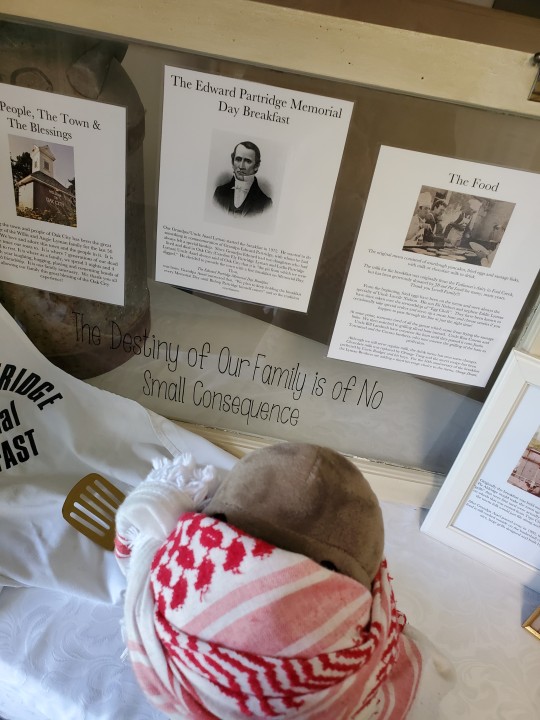


57 notes
·
View notes
Note

Mormon Bridge (official name: Mormon Pioneer Memorial Bridge) Omaha, Nebraska, USA and Council Bluffs, Iowa, USA
17 notes
·
View notes
Text
Booklist on "Red Team Blues"
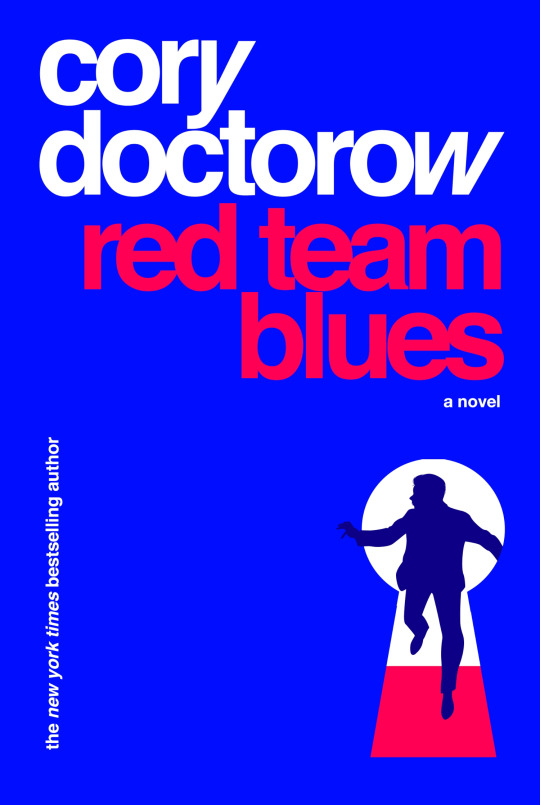
I've published more than 20 books, and I still get nervous in the few months leading up to a new book's release. It's one thing for my agent, my editor and my wife to like one of my novels - but what about the rest of the world? Will the book soar, or bomb? I've had books do both, and the latter is No Fun. Scarifying, even.
My next novel is Red Team Blues, which Tor Books and Head of Zeus will publish on April 25. It is a significant departure for me in many ways: it's a heist novel about cryptocurrency, grifters and crime bosses, the first book in a trilogy that runs in reverse chronological order (!):
https://us.macmillan.com/books/9781250865847/red-team-blues
The hero of RTB is Marty Hench, a forensic accountant and digital pioneer. Marty got his start when he discovered spreadsheets as an MIT undergrad. He got so deep into the world of Visicalc and Lotus 1-2-3 that he dropped out of university, moved to Silicon Valley, and pitted his ability to find money with spreadsheets against people who use spreadsheets to hide money.
RTB opens with Marty on the verge of retirement, when he is roped in for one last job - a favor to a friend who has built a new cryptocurrency that is in danger of imploding thanks to some stolen keys. If Marty can recover the keys, his customary 25% commission will come out to more than a quarter of a billion dollars. How could he say no?
I wrote this book in a white-hot fury of the sort that I underwent in 2006, when I wrote Little Brother in eight weeks flat. Red Team Blues took six weeks. It's good. I sent it to my Patrick Nielsen Hayden, my editor. The next day, I got this email:
That.
Was.
A! Fucking! Ride!
Whoa!
That night, I rolled over in bed to find my wife wide awake at 2AM, staring at her phone. "What are you doing?" I asked. "Finishing your book," she said. "I had to find out how it ended."
I loved writing this book, and after I finished it, I found that Marty Hench was still living in my mind. How could I keep writing about him, though? Red Team Blues is his final adventure. Then, one day, it hit me: now that I knew how Marty's career ended, I could write about how it started.
I could write prequels - as many as I chose - retelling the storied career of Martin Hench, the scambusting forensic accountant of Silicon Valley. I pitched my editor on two prequels - one a midcareer adventure, the other his origin story - and my editor bought 'em. For the first time in decades, in dozens of books, I'm writing a trilogy.
It's nearly done. I finished the second book, "The Bezzle" - about private prisons and financial corruption - late last year. I'm 80%+ through the final one, "Picks and Shovels," AKA Marty's origin story, a caper involving an early eighties PC-selling pyramid scheme run by a Mormon bishop, a Catholic priest and an orthodox rabbi, who run their affinity scam through a company called "Three Wise Men Computers."
But for all that I love these books, love writing these books, I am still nervous. Butterflies-in-stomach. I got some reassurance in December, when the New Yorker's Chris Byrd said some extraordinarily kind things about RTB when he profiled me:
https://www.newyorker.com/culture/the-new-yorker-interview/cory-doctorow-wants-you-to-know-what-computers-can-and-cant-do
Despite that, though, I continued to have vicious pangs of self-doubt, imposter syndrome, superstitious dread, haunting memories of the mentors and writers I admired as a young man whose careers were snatched away by changing industry trends, market shifts, or just a bad beat. I love this book. Would other people? I'm not a crime writer. Ugh.
Then, this week, my publicist Laura Etzkorn at Tor sent me the first trade review for RTB, Booklist's starred notice, by David Pitt:
Well, talk about timely. In the wake of the late-2022 collapse of cryptocurrency comes this novel about a forensic accountant who’s hired to work a case involving electronic theft of cryptocurrency. The guy’s name is Martin Hench; he’s in his late sixties, with decades of experience, and he thinks he’s seen it all. Until now. Doctorow, author of such novels as The Rapture of the Nerds (2012) Homeland (2013), and Pirate Cinema (2012), is a leading force in cyberpunk fiction, and here he mixes cyberpunk with traditional private eye motifs (if Martin Hench feels a bit like Philip Marlowe or even Jim Rockford, that’s probably not a coincidence).
Doctorow's novels are always feasts for the imagination and the intellect, and this one is no exception: it’s jam-packed with cutting-edge ideas about cybersecurity and crypto, and its near-future world is lovingly detailed and completely believable. Another winner from an sf wizard who has always proved himself adept at blending genres for both adults and teens.
To quote a certain editor of my acquaintance:
That.
Was.
A! Fucking! Ride!
Whoa!
Maybe this writing thing is gonna work out after all.
ETA: Well, this is pretty great. Shortly after I hit publish on this, Library Journal published its review of Red Team Blues, by Andrea Dyba:
Cyber detective, forensic accountant—whatever his title, 67-year-old Marty Hench is one of those rare people who tries to prevent financial crimes. He’s spent his whole career as a member of the Red Team, as an attacker, one who always has the advantage. Now ready for retirement, he’s living it up in California and trying to decide what he wants to do when he grows up when he’s hired by an old friend. Danny Lazer, the founder of the new crypto titan Trustlesscoin, needs Marty to recover stolen cryptographic keys and prevent the type of financial crisis that people lose their lives over. Marty delves into the shady underside of the private equity world, where he’s caught between warring international crime syndicates. The sincere and intelligent writing has a noir feel to it, enhanced by Marty’s dry humor. There’s a sense of satisfaction as this unassuming retired man dishes out comeuppance.
VERDICT This absorbing and ruthless cyberpunk thriller from Doctorow (Attack Surface) tackles modern concerns involving cryptocurrency, security, and the daunting omnipotence of technology. Great for fans of Charles Stross.
https://www.libraryjournal.com/review/red-team-blues-1794647
[Image ID: Will Stahle's cover for the Tor Books edition of 'Red Team Blues.']
#pluralistic#red team blues#marty hench#science fiction#detective fiction#crime fiction#cryptocurrency#crypto means cryptography#crypto#heists#security#infosec
75 notes
·
View notes
Text
This is part of a longer post that I've been composing in my head for months, but I've been watching a lot of anti-multilevel marketing (MLM) videos and it had started making me think about how, just like my mom has used religion to cope with her (previously undiagnosed) ptsd, she used MLMs also.
She sold Tupperware and got the Sea World convention trip. She sold Mary Kay and got the car. She sold other things I can't remember-- vitamin stuff, and was super into it.
And the way some people break down the MLMs in the videos I'm watching, really made me think about how that structure of having to constantly recruit new people is so much like evangelism in general, but particularly Jehovah's Witnesses. They are constantly trying to recruit you -- not just to save you, or teach you something they say will enrich your life, but because they have to make their quotas!
And now I'm watching these ex-JW vids, from Elders who have left the Jehovah's Witnesses, and it's bringing up a lot of memories, but also I'm getting even more of a peek behind the curtain of what goes on in the upper levels... it really is set up like an MLM corporation.
And if you're good at making those quotas, you'll probably thrive. My mom was always good at making her quotas -- both in MLM sales AND her monthly field service (proselytizing) hours. All aspects considered, she was a "better" JW than my father. She was always a joy to the congregation and everyone wanted her involved in things, she sewed the dresses for so many weddings, she sang out in meetings, and she was a zealous Pioneer who always made her quotas and brought new people in. She learned ASL to minister to one person in her territory, and ASL became a passion that led to her going to college once she was out of the JWs.
It's kinda hilarious to me that they lost a truly devoted JW when they disfellowshipped her because she wanted a divorce. 👀 (She had to break a religious law for her divorce to be recognized by the congregation, because dad being abusive wasn't enough-- because of their "two witness" rule about proving guilt. So she had an affair with a coworker, and let people find out about it, and then refused reconciliation in the prescribed Elder marriage counseling.)
When someone is disfellowshipped, they are fully shunned. Baptized people and full members of the congregation aren't allowed to speak to them or even acknowledge them. But my mom at first wanted to earn her way back in!! For which, she needed to stay devout and keep going to meetings, even though she wasn't allowed to sing or do service anymore or talk to any of her friends. And every 6 months or so, she could write a letter to the Elders and the Organization about why she should be reinstated. I overheard these things laid out to her when I snuck downstairs to listen in on their counsel. It was such a scary feeling, compared to the excitement of weeks earlier when my brother and I sat in my room listening to my parents fight about her affair, both of us crossing our fingers and whispering, "Please get a divorce."
Idk if this is where I lost my faith exactly, because even though I was raised in it I had ALWAYS questioned things that didn't make sense and got in trouble for it. But I also DID believe in the religion still-- I was 9/10 and didn't yet realize how that religion had actually been CREATED by men just the same way as Mormonism and all the other sects JWs decry. I just really started labeling them all as hypocrites at that point. The way everyone abandoned my mom, and acted like my dad was so betrayed and perfect; the way they TALKED about my mom and compared me to her all the time to keep my behavior in line. The way they would still talk to me, but not my mom. When she was right there.
...I intended this to just be short and get my thoughts out but I just kept going. Lol I'm stopping here.
But this is the video I was watching when I had to pause and type this lol.
#anti JW#ex JW#anti mlm#(as in multilevel marketing)#cults#religious trauma#my memoir#ish#podcasts#ex-cult
11 notes
·
View notes
Text
I have a story to tell, about how I do history.
I recently came across the Abraham Lincoln Brigade Association website. I was curious if there were any men from Utah who fought in the Spanish civil war. Turns out there were a few, but the vast majority were born here and actually lived in New York when they went to Spain. This isn’t surprising, a ton of brigadistas lived in NYC. But I found one man who lived in Utah his entire life. To my knowledge he is the only LDS man in the Lincoln Brigade.
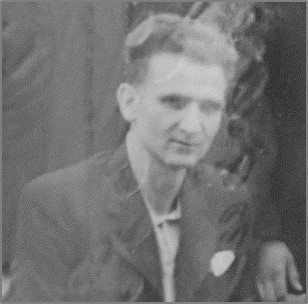
I’d like you to meet Alvin J Van Ausdal. (I still can’t find out what the J stands for, my guess is Julius, but Alvin never bothered writing it down, more power to him.) His grandather was Julius Van Ausdal, a Mormon pioneer of some renown, and Julius was most famous for...... being a committed “Indian Fighter.” Julius had a son, George, who was Alvin’s father. According to the 1900 census, George was a day laborer, probably on one of the large farms in and around the southern end of Utah Valley. These farms were huge, very exploitative affairs, and keep that in mind when I get to the latifundia in Spain later on in this story.
You wouldn’t get these details from the ALBA biography, which mainly focuses on Alvin’s service in Spain. I instead got these from his familysearch page. Given the high probability of Alvin being a member of the LDS church, given the fact that he was born and died (but did not live in his adult life), in Santaquin, Utah. I thought the genealogy website run by the LDS church would probably have the most information about him. Boy was I wrong. For starters, he had two entries, which if you’re familiar with familysearch means he’d gotten no attention. I was able to get his obituary and findagrave from familysearch, confirming he was buried in Santaquin Cemetery in Utah. The obituary mentions a widow (who is not named.... 1951....), and a son, Fred Hill. Familysearch then indicated his wife was one Lucille Waters.
Lucille seemed to have a very flushed out familysearch page with lots of memories and sources, but it become very clear to me looking at pictures of her that Alvin was not a part of her life in any really meaningful way. I went to pull up the marriage license on Alvin’s profile, and to my surprise, Lucille was not the spouse, but one Anne Hausner. Alvin’s entry on his marriage license to Anne said he was divorced, so that neatly explained why he didn’t feature in Lucille’s well-attested page, including her obituary. I quickly indicated on their respective pages that Alvin and Lucille’s marriage ended very shortly after the marriage (two years at most).
Anne had no familysearch page, so I quickly made one for her and connected her to Alvin, then went to work filling in her information from ancestry.org. To my dismay, the only evidence of her entire life is her death certificate, marriage license, and entry in her father’s 1930 census. I can’t even find a photograph of her. Can’t find an obituary, no idea where she’s buried. She was born in Austria in 1904 (location I’m sure of, date much less so), making her one year older than Alvin. She died in 1971, and Alvin died in 1954, so it’s possible she remarried, and so her obituary and headstone would be in her second husband’s last name, but her name on her death certificate is Van Ausdal and the birthdate matches. Until a record of her obituary gets indexed, I have no way of knowing where she rests, or even what she looked like.
So back to Alvin. He was born in 1906 in Santquin, to a day laborer father and stay-at-home mother. By 1910 however, when Alvin was 3, George and Ellen owned their own hay farm. In 1920 at age 13, Alvin was still in school, and by 1930, he lived at 84 West Main Street, Santaquin Utah, and worked as a silver miner. Interestingly, he’s listed as a student in the 1930 Provo directory. BYU student? Possibly. Not sure how to check that one out.
But we’ve been getting into a lot of allusions and ‘probably’s lately. The next fact we have: In 1936 Alvin van Ausdal joined the Communist Party, USA, likely radicalized by his experience as a silver miner. In the 30′s the Communist Party was more of a subculture than anything else, occasionally running candidates for office. They didn’t agree with Stalin’s authoritarianism in the Soviet Union, on the contrary they thought the reports of the show trials and purges and famine were made up or overblown. Most of them were intensely patriotic. (A CPUSA joke from the 30′s goes: “How do you know a man used to be in the Young Communists League? (the youth organ of the CPUSA) He knows all four verses of The Star-Spangled Banner”.
Like everyone in the United States, he probably looked at Franco’s coup in Spain in July 1936 with great alarm. As a member of the CPUSA, he would’ve known about the International Brigades being set up by ComIntern. Eight days after the coup started, a conference of communist parties from around the world met to send aid to the Second Spanish Republic. The Lincoln Battalion was the first American unit sent over, in February 1937. The second, the Washington Battalion, was the one Alvin was a part of, and he arrived in Spain in May, as part of Company 3. Alvin would’ve fought at Villanueva de la Cañada, alongside Frenchmen and Bulgarians, and at Mosquito Ridge he would’ve been sent as a frontal assault into Fascist lines. He fought at Quinto, alongside Soviet tanks and went house-to-house at Belchite. He was joined by Canadians, and Germans and Italians who were taking up arms to fight other Germans and Italians on the other side. After 5 months of nonstop fighting, Alvin’s brigade got it’s first time of rest and relaxation. I’d give anything to know how the mormon from Santaquin spent the time.
In December, the XVth was sent to defend Teruel from a Nationalist attack. The winter of 37-38 was yet another of those “coldest winters on record”. The Lincolns called their position “The North Pole”. After two months of fighting the Lincolns were pushed out, told they were going to go on rest for three weeks, then sent back to the front and surrounded Teruel. The Nationalists did not withdraw, and Alvin did not get any rest.
Then The Retreats began. The Lincoln-Washington battalion was forced to fall back, and many were captured. In the Spanish Civil War, capture often just meant you fought for the other side now. Not so for the Internationalists. Franco had sent out a standing order for any captured brigadista to be summarily shot.
Then the battle of the Ebro was fought. The XVth crossed the mythic river Ebro, and charged across territory they had lost in The Retreats. The Nationalists rallied, and then pushed them back. At this point, my assumption is that Alvin survived capture, and made his way into France, since we next see him arriving in New York on August 4 1938, having departed from Le Havre.
Alvin left Spain probably during the Nationalist counteroffensive in early August. Nationalist troops captured Madrid without a fight on March 28, 1939, and on April 1, Franco declared the end of the war. Guerilla fighting would continue into the 1950′s.
Alvin landed in New York City, and lived in the Bronx at least until 1940, probably longer. He was a registered Democrat, and I can’t comment any more on his politics at that point due to a lack of sources. He married Anne Hausner on 16 March, 1940, in Leesburg Virginia. I have no clue why two Bronxites chose to have their marriage officiated in Virginia. He registered for the draft in 1940, listing himself as unemployed. He almost certainly had a FBI file, which I have been unable to find, but would like to very much. His 1940 and 1950 census records have not been indexed.
He moved to Amador, California during WWII, in which he never served (very typical of Lincolns to not serve during WWII.) He died in Los Angeles of a heart attack on December 23, 1954, and was buried in Santaquin Utah.
I clearly don’t have the whole story, and I want it. What drove the Mormon miner, son of a hay farmer, grandson to a pioneer and Indian fighter, to join the Communist Party and fight in Spain? Why did his first marriage fall apart so quickly? Did he have any children from his second marriage? Who was Anne?
I know he has a State Department file, and it’s pretty likely he has an FBI file. I’ve filed an FOIPA request for his FBI file, and will let the world know what I find.
13 notes
·
View notes
Note
Hi! This might be a little weird but I’m headed to salt lake city in a couple of days bc we have family who temporarily moved out there and we’re spending the holidays with them. I was wondering if you knew any cool sites or anything, bein’ interested in the history that you are?
not weird at all! happy to help! i am planning to visit salt lake city in april with some friends actually so i had already compiled a list of historical sites that i sent to them. here's some of my ideas and commentary:
You are obviously going to want to visit Temple Square. This is sort of the centerpiece of Salt Lake City that everything is built around (the Temple wasn't completed until the 1890s but they broke ground on it pretty much right away and most of the original construction of important buildings was adjacent to that lot, plus 19th century housing sort of radiated out from there. You won't be able to get into the temple at all right now because they're renovating, and if you're not a temple recommend holding Mormon they wouldn't let you in anyway, but it's definitely worth walking around and looking at the architecture anyway, plus a lot of other monuments/sights are right there.
Overview of the stuff in and around Temple Square:
I would also def recommend you check out the Beehive House and the Lion House, Brigham Young's residences off of Temple Square.
The Beehive House was the “official” residence and it is open to the public for tours. The Lion House is a larger building where most of Brigham Young’s wives and children lived (kind of dormitory style). You cannot tour the Lion House but for some reason there is a cafeteria in it now that you can visit. Plus, again, you can check out the outside!
The Tabernacle was built in 1867! If you go there at noon on a Monday-Saturday or 2 pm on a Sunday, you can hear an organ recital. There might also specifically be Christmas-centric music offerings if you're going at this time of the year. The Tabernacle Choir is very very good and there is a great tradition of choral music performance in Mormonism.
Church History Museum. (This is going to be sort of a mix of actual historical artifacts and religious propaganda. I personally find the religious propaganda aspects sociologically interesting and that's part of why I want to go, but YMMV)
Daughters of Utah Pioneers Pioneer Memorial Museum. Lots of cool niche artifacts! And it's not church-run so it'll be a somewhat different take on Utah history.
The rest of this stuff is NOT in the Temple Square vicinity but I think would also be very cool:
There are a lot of historical homes here and sort of a living-history/reenactment focus. (Mormon colonial Williamsburg? LOL). I definitely plan to go here when I visit!
Here's a list of all the replicated or relocated 19th century buildings they have there!
Chase Home Museum of Utah Folk Arts!
Hope you enjoy and I would love a report back on anything you end up seeing as my friends and I are planning our own trip!
#the heritage park is so interesting bc most of the buildings are associated w families ive read about! so it's cool to be like.#i read about the family that lived in this building. and that one. and that one.
13 notes
·
View notes
Note
Hi so I’m not really sure how to ask this in a way that doesn’t sound pretty confrontational but I’m genuinely curious. What parts of the Mormon faith do you believe in? Or are you more of a cultural Mormon who’s pretty divorced from the belief system? I want to be clear that I’m not of the habit of challenging/questioning anybody’s religious beliefs, but I think Mormonism occupies a unique historical position that leaves it open to criticism for being pretty solidly grounded in—and irrevocably intertwined with—anti-indigenous racism, American exceptionalism, and historical revisionism. I find it hard to conceptualize a version of that faith that still falls under the Mormon label but somehow isn’t based on those principles.
This is a pretty loaded ask and I understand if you don’t want to/can’t answer (I also know you talk more about your faith on your sideblog but I don’t know what that blog is so I couldn’t go there for more understanding). I’m also aware that those criticisms can be applied to a lot of modern sects of Christianity, so know that I’m critical of those principles wherever they appear. I’m asking you because you’re someone that appears on my dash pretty frequently who I generally vibe with so I want to know more
Ok! So first of all my Mormon sideblog is @im-mormon-and-not-straight! Feel free to scroll through there whenever you feel like.
Second of all, yeah I totally agree that the institutional church kinda sucks in a lot of ways. Now I say that as someone who still participates greatly in the institutionalized church. (I go to church basically every Sunday, I watch general conference every 6th months, stuff like that) And as a gay ass Mormon, I have TONS of first hand experience with being at the brunt of shitty things that it has done.
The claim of anti-indigenous racism is so broad that I'm not quite sure what you are talking about.
If you're talking about violence done by pioneers then I totally agree that was fucked up, though from what I understand of church history (which COULD be wrong I don't have a perfect memory by any means) the leadership of the church at the time condemned that violence. Either way, totally agree that it was shitty! But in my mind those were actions done by shitty people who happened to be mormon, not something they did *because* they were mormon
If you are talking about the book of Mormon being based on indigenous Americans that one can get a lot more complicated. I've heard all sorts of ideas on the subject and honestly I haven't figured out what I agree with the most. Some people have said that the BoM is a work of inspired fiction and the events never happened, but it still has spiritual merit and is worth driving meaning of. I've heard other people say that claiming the BoM is fiction erases indigenous history (?) and we shouldn't be completely writing off any historical value. I find myself somewhere in the middle. I don't know whether or not the events in the BoM actually happened and honestly I don't particularly care. I can still learn from what's in it and I take the themes as they are.
I TOTALLY agree with the American exceptionalism point and it drives me bonkers. There's the tidbits of American religious freedom giving the restored gospel a place to flourish that I can jive with but when people go beyond that it makes me just. So frustrated. Everytime oaks gives a talk about how cool and nifty the constitution is I want to rip my eyes out. (Also every time oaks gives a talk ever. I have hated almost every single talk that man has given) it's like they forget that most of early church history everywhere that Mormons went in the us the other americans went "eyyo fuck religious freedom let's burn these people to the ground" (obviously more nuance there but like. The Mormon extermination act HAPPENED. IN the us. It's not like it's some holy institution.) And that's only about shit that affects "Mormons" specifically. (Though of course things like institutionalized racism affect mormons of color. It's just not targeted to every single mormon) American exceptionalism is just another thing that bugs me about the institutionalized church. Like God. Shut up. The USA is not inherently better or worse than any other country.
The historical revisionism thing is something I'm not as well versed on and I don't even know where to begin with what you mean by that. I do know a Mormon historian (as in a historian who works on Mormon history as well as being Mormon himself) and he is dedicated to cataloguing history as it is? Idk maybe I'm missing smth with this one.
Third of all, I consider myself Mormon in both the religious sense and the cultural sense. Being a queer Mormon is something very central to who I am as a person. However there was a point where I was VERY divorced from the church. I was only going because it was what I did and what was expected of me. And to be honest, I found my testimony through my queer identity.
Now, atleast for me, being a queer Mormon is predicated on the belief that the institutionalized church can, and is, wrong about many things. And this is something backed up by doctrine (that people don't talk about enough -_-) we believe in revelation!! That means we don't have all the answers!!! It frustrated me that people act as if the prophets are somehow unable to fuck up as if Joseph Smith himself didn't majorly fuck up while translating the BoM leading to loosing an entire book of the BoM.
Anyways that was a little bit of a tangent.
What I mean to say is that I am someone who calls out bullshit from the prophets and first presidency and I have made the gospel my own. It's hard to put this into words (I've tried several times already and none of them feel quite right) but the foundation of my testimony came from being able to see the good nuggets of the gospel. I wouldn't have a testimony in the gospel if I wasn't able to sort through the bullshit because if I didn't see the good then I would've moved on.
Basically I was well aware of the bad shit before finding the good shit if that makes any sense.
Like. the amount of times I've had a "don't be gay" lesson or had to listen to oaks give a talk that made me want to march up to slc and punch him in the face, or heard someone interpreted scripture in the worst regressive-ass take, it's helped me find a way to move in the opposite direction. Im a firm believer in the phrase "the gospel is true, but not always the church"
Anyways, leading off on to favorite verse!!
2 Nephi 2:25 "Adam fell that men might be; and men are that they might have joy"
#queerstake#tumblrstake#long post#this is the first time i think ive gotten a big ask about being a mormon on this blog#and honestly from whats happened on my other blog i expected it to be a LOT worse#so thanks for being pretty polite!!!#its a lot easier to give nuanced answeres when i dont feel like the other person has decided to despise me and everything i say#before ive even said anything to them#hope this is coherent ive been rambling for like a half an hour#also if you have any other questions feel free to ask!!#this is something that i care a lot about so im happy to ramble on and on
6 notes
·
View notes
Note
74, 78, 93, 95 ,97
Hey anon! :)
74. Favorite Candy
I go through phases with candy. Currently I would say BubbleYum original flavor gum.
78. Are you religious? Does God exist?
This is funny timing, I was just asked this second question by my partner yesterday because she's going through some unfortunate grief and it was a good chat.
❗️❗️Red alert❗️❗️ Get ready for a tangent, you asked for it!! TL;DR below.
I am not religious. I grew up in mormonism and it was pushed HARD on me but it never clicked or felt real. In my head I was like, 'These adults love telling stories and they're interesting I guess!' but I was skeptical from the beginning. Why does God talk to Moses (or whoever lol) through a bush on fire?? Why did God let Joseph Smith marry and rape all those young teens? They would say in Young Women's class that it was because there werent enough men due to pioneering deaths but even then it never made sense to me.. and dude the temple underwear and the rituals they did in there that even now are creepy!! Homophobia and racism galore 🤢
In regards to God, I do not believe there is one. I also don't think there are truly souls. 🤷♂️ Humans like to think they're different than anything else on this planet and that they have a higher purpose but I think that's the ego talking and the fear that there is no meaning.
We are the same level as everything here, basic mammals and when we die we are at peace and are eventually recycled through the earth and those decomposing particles go through the next life cycle. Kind of like reincarnation but not if you catch my drift?? We're all star dust and particles that were made out of chance. I think there are definitely other planets beyond ours with similar levels of life too. 👽
I do think the closest thing to soul is what you do for one another. Example, my grandma and I sat on the porch every other evening when I was a child and we didn't speak much but her presence and gentle showing of affections were very memorable to me and I want to show love like that to people around me now ❤️. I also love porch swings lol. These memories and mannerisms live on through to our decendents and because of that they are in a way 'with' us. Unfortunately it can go the other way as well (PTSD poster child here lmao) and there have been studies on the ripple effects of generational trauma.
TD;DR: I believe in science. Yes I'm fun to have at parties lol 😆
93. What colors are the walls in your room?
Unfortunately white 😕... Renting liiiife! *shakes fist*
95. Share your favorite quote?
"I stepped into those woods and my life began." - Circe by Madeline Miller
97. Do you like horror movies? 🔪
Hmm I do! But I don't really look out for them, they come to me through 'connections' AKA friends lol. I was more into them as a teen.
1 note
·
View note
Text
Thomas Tanner The Blacksmith
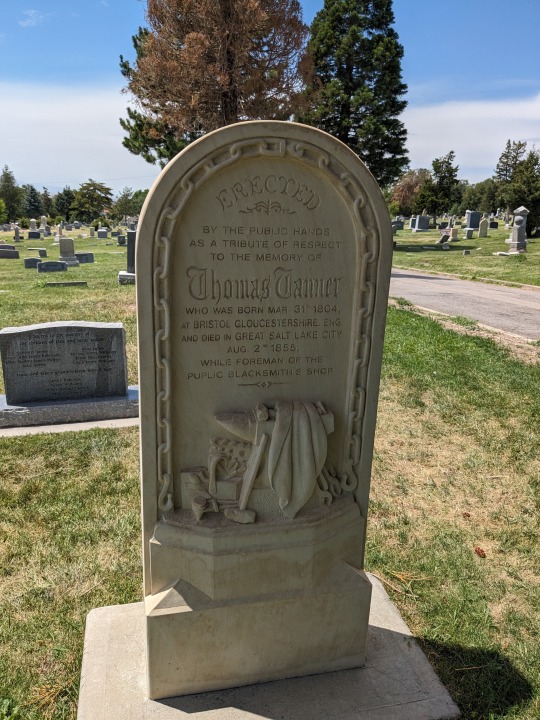
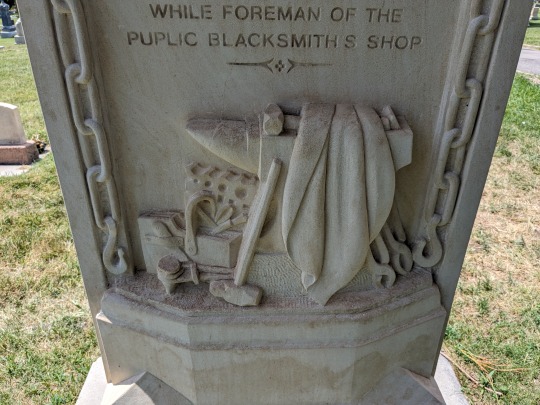
Thomas Tanner was a blacksmith who came to Utah during it's early years. He was (as you can see on the marker) a blacksmith and foreman of the public blacksmith shop. He was well respected, and this marker was erected as a memorial by the people in the area, who appreciated his work and personality. There's limited information on his but it's clear by the death notice (published in the local paper) that he was well respected and he was a member of the local LDS Church.
This is a really nice stone and in great condition. They included items related to being a blacksmith or made by a blacksmith as if to further emphasize his position in the early colonial period of the Utah Territory (and yes, the LDS did colonize the region).
It's truly beautiful in person, if you have a chance to visit it, I highly recommend it. The use of Chains instead of ivy or flowers to surround the inscription area is unusual for this time period but totally makes sense given his occupation.
The date of his death indicates that he was a Pioneer who came to the Utah Territory during the Pioneer era (1847-1868). He was LDS, as they refer to him as Brother Tanner and refer to the LDS as Saints, something that is usual for this time period in the LDS Church. It's uncommon now (though I'm possibly wrong about it).
A community-created marker for a single individual is relatively unusual so the fact that this exists does say a lot about the time period and the man buried beneath it.
This time period in Utah was a period of famine and harassment either by the US government or the local Indigenous tribes who originally lived in the area and were reasonably wary of the arrival of the LDS.
My research was mostly on the Saints' death practices so I cannot say with any certainty that the LDS were kind or sought to work with the people who already lived there. However, there were some indications that the tribes in the area were also experiencing a famine and there was some work together between the Mormons and the Tribes but there was also plenty of unnecessary harassment and the usual attitude of Christian White Superiority that White folks tended to lean towards. This is documented historical fact, not some liberal whitewash stuff. Anyhow, we've moved off-topic.
During the early Utah Territory days, there was a lot of almost socialist community work taking place where the community worked together to provide themselves and each other with food, clothing, safety, housing, etc. And that was incredibly necessary during this time period because they were essentially living in the middle of the high desert with minimal access to food, clean water, and housing outside of what they managed to plant, irrigate or build themselves.
Because of all of that, I see this man's grave marker as a sign of how well the LDS community was able to work together to build a colony in the fairly desolate Utah Region. It was not easy for them.
1 note
·
View note
Text
Events 7.24 (before 1950)
1132 – Battle of Nocera between Ranulf II of Alife and Roger II of Sicily.
1148 – Louis VII of France lays siege to Damascus during the Second Crusade.
1304 – Wars of Scottish Independence: Fall of Stirling Castle: King Edward I of England takes the stronghold using the War Wolf.
1411 – Battle of Harlaw, one of the bloodiest battles in Scotland, takes place.
1412 – Behnam Hadloyo becomes Syriac Orthodox Patriarch of Mardin.
1487 – Citizens of Leeuwarden, Netherlands, strike against a ban on foreign beer.
1534 – French explorer Jacques Cartier plants a cross on the Gaspé Peninsula and takes possession of the territory in the name of Francis I of France.
1567 – Mary, Queen of Scots, is forced to abdicate and be replaced by her one-year-old son James VI.
1701 – Antoine de la Mothe Cadillac founds the trading post at Fort Pontchartrain, which later becomes the city of Detroit.
1712 – War of the Spanish Succession: The French under Marshal Villars win a decisive victory over Eugene of Savoy at Denain.
1847 – After 17 months of travel, Brigham Young leads 148 Mormon pioneers into Salt Lake Valley, resulting in the establishment of Salt Lake City.
1847 – Richard March Hoe, American inventor, patented the rotary-type printing press.
1864 – American Civil War: Battle of Kernstown: Confederate General Jubal Early defeats Union troops led by General George Crook in an effort to keep them out of the Shenandoah Valley.
1866 – Reconstruction: Tennessee becomes the first U.S. state to be readmitted to Congress following the American Civil War.
1901 – O. Henry is released from prison in Columbus, Ohio, after serving three years for embezzlement from a bank.
1910 – The Ottoman Empire captures the city of Shkodër, putting down the Albanian Revolt of 1910.
1911 – Hiram Bingham III re-discovers Machu Picchu, "the Lost City of the Incas".
1915 – The passenger ship SS Eastland capsizes while tied to a dock in the Chicago River. A total of 844 passengers and crew are killed in the largest loss of life disaster from a single shipwreck on the Great Lakes.
1922 – The draft of the British Mandate of Palestine was formally confirmed by the Council of the League of Nations; it came into effect on 26 September 1923.
1923 – The Treaty of Lausanne, settling the boundaries of modern Turkey, is signed in Switzerland by Greece, Bulgaria and other countries that fought in World War I.
1924 – Themistoklis Sofoulis becomes Prime Minister of Greece.
1927 – The Menin Gate war memorial is unveiled at Ypres.
1929 – The Kellogg–Briand Pact, renouncing war as an instrument of foreign policy, goes into effect (it is first signed in Paris on August 27, 1928, by most leading world powers).
1935 – The Dust Bowl heat wave reaches its peak, sending temperatures to 109 °F (43 °C) in Chicago and 104 °F (40 °C) in Milwaukee.
1943 – World War II: Operation Gomorrah begins: British and Canadian aeroplanes bomb Hamburg by night, and American planes bomb the city by day. By the end of the operation in November, 9,000 tons of explosives will have killed more than 30,000 people and destroyed 280,000 buildings.
0 notes
Photo
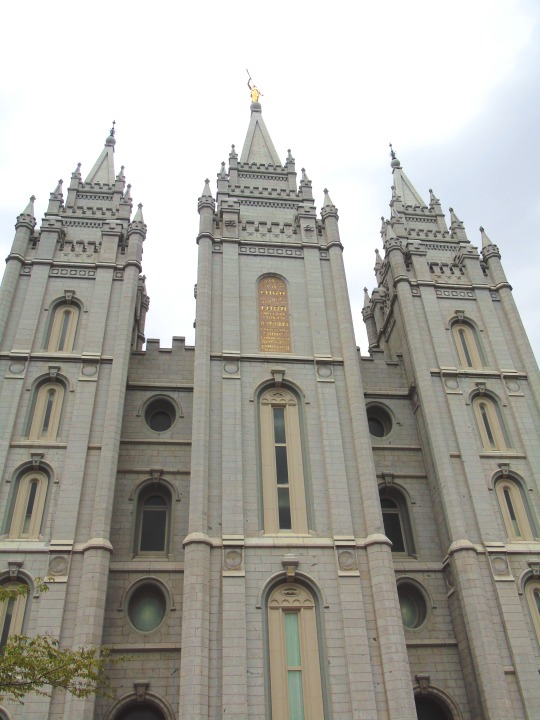
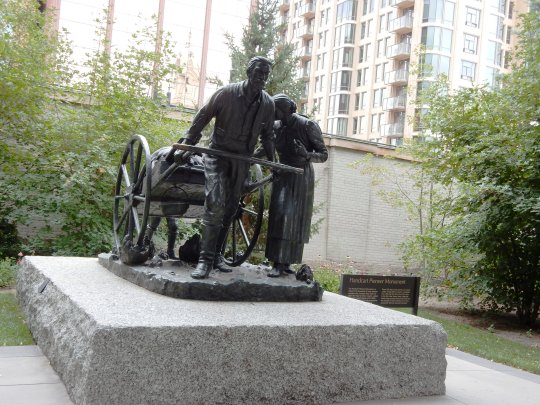
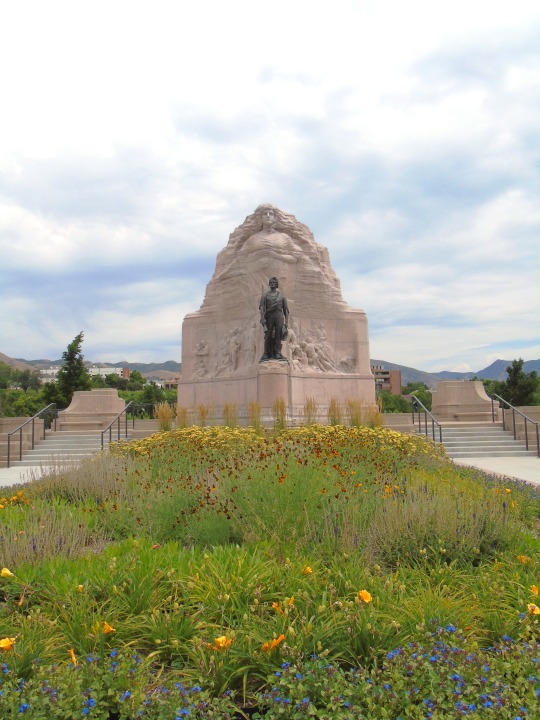
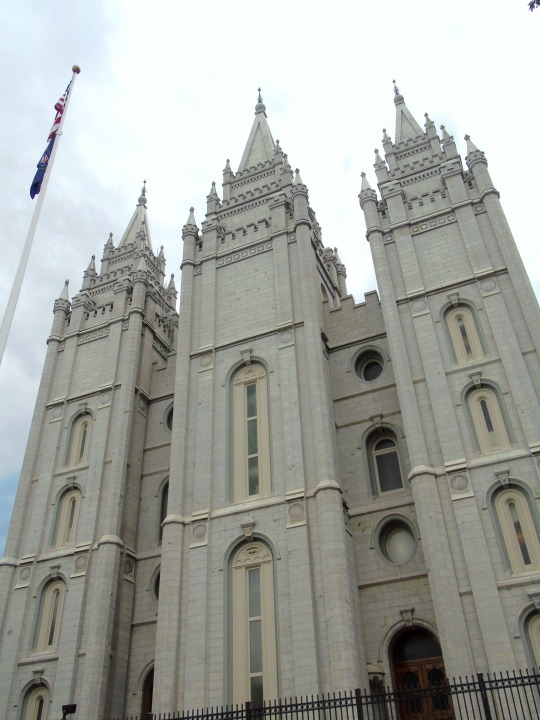
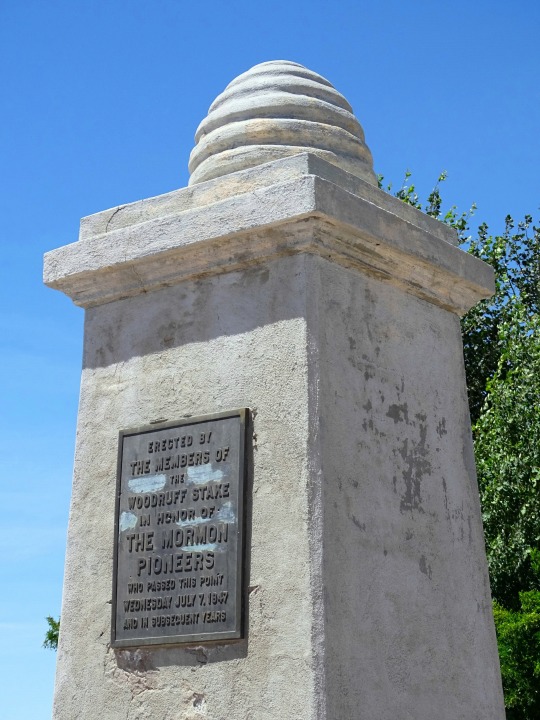
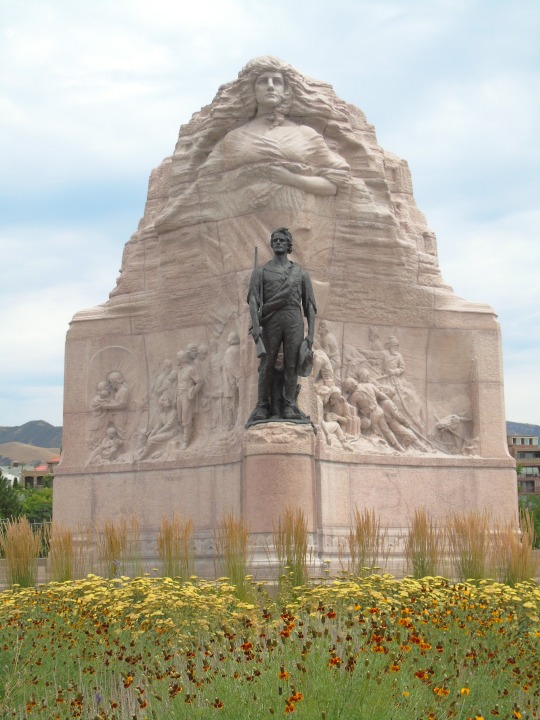
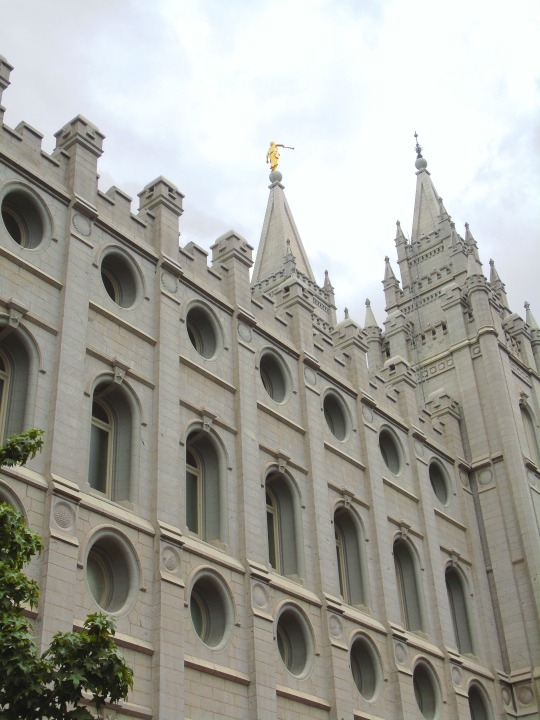
Five hundred Mormons left Iowa City for the Mormon Trail on June 9, 1856.
#Handcart Pioneer Monument by Torlief S. Knaphus#Mormons#Mormon Trail#9 June 1856#Mormon Pioneers Memorial#Echo Canyon#summer 2017#2019#Utah#Salt Lake Temple#Salt Lake City#architecture#cityscape#Salt Lake Temple of The Church of Jesus Christ of Latter-day Saints#LDS#Mormon Battalion Monument by Gilbert Riswold#Temple Square#Truman O. Angell#USA#original photography#165th anniversary#US history
5 notes
·
View notes
Note
i know you already answered an ask like this but please tell me that i’m not broken. i was in institute today and my teacher basically implied everyone was fine with their sexual orientations (straight) until more information about it became available, and that if no body talked about it no one would be gay
hahaha, what a load of crock. Straight people tell themselves all sorts of crazy things. “Everyone was straight and fine with it until people started talking about other options.” No, this was never true. People couldn't talk about it and had to hide this part of themselves.
There were severe consequences for other people finding out you're queer. This is why your Institute Teacher thinks there were no gay or trans people in the past, we had to hide and go along in order to get along.
I'm 50 years old. When I was born, in the United States gay people were seen as sexual deviants and perverts. Many states and cities had laws against same-sex couples dancing, against wearing clothes that don't match your gender. If it was found out you were gay, you likely would lose your job, be kicked out of your apartment, and often your family would abandon you. Most civic organizations would ban you, including the PTA and the Boy Scouts. Being gay was classified as a mental illness and the US government banned gays from working for the government or any company that does business with the government. Sodomy, aka gay sex, was illegal in most states. Gay couples couldn't get married. Basically being gay was illegal, considered immoral, and diagnosed as a sickness.
Just because queer people don't fit with your Institute teacher's vision of what the world should be, it doesn't mean we haven't existed.
----------------
Same-sex behavior (courtship, sexual, pair-bonding, and parental activities) has been documented in over 450 species of animals worldwide. This is normal. Only humans, including your Institute teacher, think such behavior is against nature, but clearly it isn't. We aren't the ones who are broken, your Institute teacher is the one engaged in a willful self deception against logic and the reality of the world.
----------------
In spite of all the terrible consequences, many queer people have been standing up for themselves and trying to change opinions about queer people and fight for legal protections.
Here's a gay pioneer you can be proud of, Leonard Matlovich. He was a Vietnam War veteran, recipient of the Purple Heart and the Bronze Star. He came out of the closet and fought to be able to stay in the US Air Force. He became the 2nd most well-known gay person in America in the 1970's, after only Harvey Milk.
When he appeared on the cover of Time magazine in 1975, Matlovich became the first openly gay person to appear on the cover of a U.S. newsmagazine.

Matlovich was also a Mormon and shortly after appearing on Time magazine, he was excommunicated. Somehow that wasn't enough, he got excommunicated a second time in 1979.
He spoke around the country and was an advocate for AIDs/HIV patients from the start of the outbreak in the 70s. He contracted the virus in 1986 and died 2 years later at age 44.
Leonard designed his tombstone. It purposefully doesn't list his name because he wanted it to be a memorial for all gay veterans. Every year on Veteran Day, LGBTQ military veterans gather around his grave in Congressional Cemetery in Washington, D.C. to remember and honor all those LGBTQ patriots who paved the way for them.

This is a hero, and someone the church found too frightening and controversial to let be a member. He and others helped pave the way for what changes that have happened in the Church, and I can't help but expect more change will come as the institution comes to grips with understanding that being queer isn't a choice, it isn't 'fixable', and God loves us and meant for us to experience life this way.
74 notes
·
View notes
Text
I miss being Mormon
personal and boring
I am Catholic but I used to be Mormon and I can't shake the feeling that the LDS Church is true and I am on the wrong path. Additionally, I miss the LDS church intensely and feel this constant severe and painful longing for it.
I specifically joined the Catholic church after much research because I felt that the only way I could really know what the truth is was through reason since my feelings have led me astray so many times. And since the LDS church puts this emphasis on knowing the truth for yourself through a special kind of feeling, or sensation, I didn't think I could rely on that.
But I still can't shake the feeling. It haunts me. Deep inside I have this "knowing" that Mormonism is true, not to mention weird "coincidences" happen all the time that seem like signs. Although I have faith in the Catholic church, it does not move me culturally or emotionally like the LDS church does. I draw strength from the Mormon pioneers, but I struggle connecting to the saints. I take comfort in believing God is my actual Heavenly Father, but the Trinity feels foreign. Mormon hymns bring me to tears; Catholic hymns are dry and spiritless. Mormons in general are powerful examples of goodness; Catholics aren't really any better than most other people. Mormon doctrine is beautiful and comforting; Catholic doctrine is strange and complicated. It has never felt like home. Mormonism feels like home.
And so I constantly feel like I am wandering in a strange barren land, far away from my loved ones and familiarity and comfort and safety. And part of me still believes Mormonism is true, even though I fight against this and try to reject it, and know rationally in my mind that Catholicism is true. It's not as simple as, just don't listen to my feelings. I have to deny a huge part of what feels like my very being and it makes me feel hopeless. There is no fire in me like there was before.
What it's like is, imagine you grow up in a wonderful loving family full of happy memories. But then you find out they're not your real family, and you have to go live with a different family. But you never really are able to like or connect with this new family and you don't enjoy being with them and you can't be yourself with them, and you just wish you could go back to the original family, but you can't.
And I don't even have anyone to talk to about it, because the kind of person could really understand what I'm going through is so weird and specific and rare they probably don't even exist.
13 notes
·
View notes
Photo
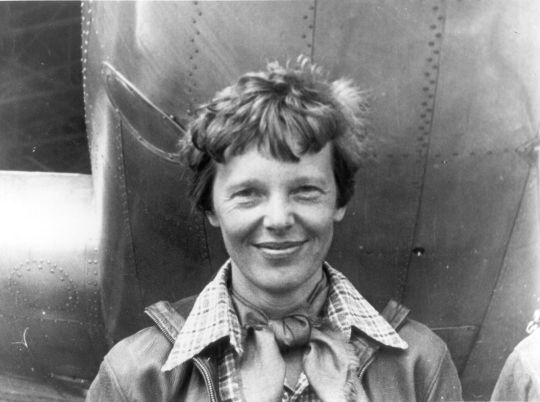
July 24th is...
Amelia Earhart Day - Honors the achievements of the aviation pioneer on the date of her birth. One of Earhart’s most impressive achievements took place on May 20th, 1932. Earhart took off from Grace Harbor, Newfoundland. Due to Earhart’s challenges in flight, she landed the red Lockheed Vega 14 hours and 16 minutes later in Derry, Ireland. All in all, the flight was a success. She became the first woman pilot to complete the journey. Following Earhart’s record-setting accomplishment, she earned the United States Distinguished Flying Cross.
Cousins Day - Whether cousins grow up together in close-knit families or only see each other occasionally, they share common memories through grandparents, aunts, and uncles. At family gatherings, cousins entertain each other and get into trouble together, too.
Drive-Thru Day - Recognizes an innovation conveniently going strong today. The drive-thru reached its iconic zenith in the 1950s. People have enjoyed this service since the 1930s.The ease of dropping off or picking up an item without getting out of the car may be something we take for granted. Of course, many studies point to the benefits and drawbacks associated with using the drive-thru.
International Self Care Day - Promotes self-care as a vital foundation of health. It’s also a day for people around the world to prioritize self-care and make it a part of their lifestyle. When you take care of yourself to stay well, you are practicing self-care. Staying well includes taking care of your whole self: physically, mentally, and emotionally.
Pioneer Day - To commemorate the day the very first group of Mormon pioneers came to Salt Lake Valley. While the date is considered an official state holiday in Utah, there are also celebrations around the world. After all, pioneers come in many different shapes and forms, and so a lot of people use this date to celebrate pioneers in a broader context, while also paying tribute to the Mormon pioneers in the process.
Tequila Day - Mix up a Margarita, Paloma, or a Mamasita to celebrate the day! People have been making Tequila for centuries, and it was once known as mezcal wine. In fact, Tequila is mezcal, but mezcal isn’t Tequila. That’s because Tequila is distilled from a specific type of agave plant.
Thermal Engineer Day - As specially trained professionals, thermal engineers develop solutions to complex systems. At the same time, their focus may be on the mechanical, but thermal engineers also coordinate with other specialties. By combining communication and organizational skills, these specialists ensure operations continue to run smoothly.
14 notes
·
View notes
Photo

In "Long Walk to Freedom", Nelson Mandela said:
"No one is born hating another person because of the color of his skin, or his background, or his religion. People must learn to hate, and if they can learn to hate, they can be taught to love, for love comes more naturally to the human heart than its opposite."
~~~~~
His tombstone has no name.
He was called "a man of a great many ethics, and very intense about his human rights beliefs, causes he could never put down."
Before his journey, however, he did and said things he would later regret.
He was born in 1943, two days after July 4th.
Growing up in a conservative environment on military bases in Georgia and South Carolina, he admitted he was a "white racist" and a homophobic.
“I spent most of my life putting others down,” he said.
He was part of the crowd shouting, "2 - 4 - 6 - 8, we don't want to integrate."
He said he "idolized the Confederate flag . . . [it was] a symbol of the past and the way things were and they should still be. Not necessarily slavery, but the white of white—the right of white oppression.”
He also subscribed to the myth that “to be gay it meant that I had to wear a woman’s dress, I had to molest little children, and I had to go in bathrooms and watch people.”
“I had a low self-image of myself. So if I could have someone who was lower than I was, the Black American… even . . . Jewish people in general . . . as long as I could put someone else down, then I wasn’t the lowest person on the totem pole. So I spent most of my life putting others down.”
“I’d use the word queer and fag*ot and put gays down,” he admitted.
~~~~~
"He followed his father’s footsteps into the Air Force in 1963 at the age of 19 and served three tours in Vietnam," according to writer David Roza in June 2021's Task and Purpose military news.
Despite the beliefs he grew up with, he became a hero.
He earned a Bronze Star for killing two Viet Cong soldiers attacking his post while he was on sentry duty, according to the Washington Post. He later earned a Purple Heart for being wounded after stepping on a Viet Cong land mine.
At that time, he still was wary of anyone different than him and still believed in the stereotypes he grew up with.
In the military, outside in the world, however, he started questioning his previous beliefs and those stereotypes.
He became friends with a Vietnamese interpreter and learned about other cultures.
He then became friends with a Black colleague.
After getting to know his Black friend, he told himself, “‘he’s different, he’s not like the rest.’ And then I met another Black who was different, not like the rest, and then another one who was different, not like the rest. Until I began to look around and see so many different individuals.”
He also started learning about himself.
"Over time, his bias against homosexuals began to fade, along with his bias against African-Americans, who he found himself serving alongside and taking orders from during his time in the Air Force," wrote Roza.
“One stereotype after another stereotype started to crumble,” he told The New York Times.
Learning about others led him to learn more about himself.
He realized he went to Vietnam to prove he was masculine, he said, but instead he became something more.
He found the courage to be himself.
He said he always knew, but had continued to deny it.
“In September 1975, a stunning issue of TIME magazine hit the newsstands,” according to writer Kay Tobin Lahusen. “On the cover was the photo of a young man wearing his Air Force uniform."
“I am a homosexual” read the title in bold under the airman’s uniformed portrait.
"His name tag said 'Matlovich'."
Leonard Matlovich.
The Peace Page has previously shared stories of Leonard Matlovich, but this story includes some rare insights, including words from Matlovich himself.
~~~~~
When Matlovich appeared in Time, “It marked the first time the young gay movement had made the cover of a major newsweekly,” according to author Randy Shilts in his 1993 book "Conduct Unbecoming", about discrimination against lesbians and gays in the military. “To a movement still struggling for legitimacy, the event was a major turning point.”
“Even the most hardened homophobe had to take pause when he reviewed Matlovich’s record,” Shilts wrote. “Credentials such as a Bronze Star, a Purple Heart, and twelve years of outstanding service meant something that civilians could barely imagine.”
Matlovich's media appearances had a big effect on America,” according to David Addlestone, a lawyer with the American Civil Liberties Union. "He was a patriotic, conservative middle-class war hero. He destroyed the popular myth of homosexuality."
Matlovich, the LGBTQ rights pioneer, was the first gay service member to purposely out himself to the military to fight their ban on gays, and perhaps the best-known openly gay man in the United States of America in the 1970s next to Harvey Milk.
He was “inspired and guided by gay rights pioneer Frank Kameny, who had been looking for a test court case to challenge the military’s ban on homosexuals," according to Making Gay History.
“He … was the epitome of a perfect soldier, one of those people that stuck his neck out, and he was proud to be the person to challenge that law,” Jeff Dupre, a longtime friend of Matlovich, told NPR in 2015.
He “was the kind of serviceman the air force prided itself on,” according to writer Naveena Kottoor.
When he finally came out, at the age of 30, he was warned that he would be throwing “away 13 years of military service and a pension", according to Addlestone.
When “an Air Force attorney asked him if he would sign a document pledging to ‘never practice homosexuality again’ in exchange for being allowed to remain in the Air Force,” he refused.
He replied that “he couldn't live a lie" any longer.
In October of 1975 - despite his exemplary military record, tours of duty in Vietnam, and high performance evaluations - Leonard Matlovich was ruled unfit for service and discharged, according to Back 2 Stonewall.
“In 1980 he finally won reinstatement, which he declined; the Air Force upgraded him to an honorable discharge,” according to "Gay Alternatives".
~~~~~
“Throughout American history, LGBTQ+ citizens have fought to defend our rights and freedoms -- from the Founding of our nation to the Civil War, from the trenches of two World Wars to Korea and Vietnam, and from Afghanistan to Iraq,” said Secretary of Defense Lloyd J. Austin III in the Opening Remarks at DOD Pride Month Event, June 9, 2021.
“They fought for our country even when our country wouldn’t fight for them . . . Even as some were forced to hide who they were… or to hang up their uniforms.”
~~~~~
Matlovich’s case inspired other enlisted gay and lesbian people to fight for their right to serve, including Navy officer Vernon E. “Copy” Berg, according to Making Gay History.
“Matlovich’s LGBTQ activism did not end with his court case. He lent his voice and influence to several battles against homophobia: Anita Bryant’s anti-gay crusade; California Proposition 6, which sought to ban gay and lesbian teachers from public schools.”
In June 1987, Matlovich was one of 64 demonstrators arrested protesting the White House’s AIDS policies,” according to the Washington Post.
“He also contributed to the founding of Affirmation, an affinity group for LGBTQ Mormons, and forced Northwest Airlines to end its discriminatory policy regarding passengers with AIDS.”
“Matlovich [is also] lovingly memorialized on the AIDS Quilt."
In June 2019, Matlovich was one of the inaugural 50 American “pioneers, trailblazers, and heroes” inducted on the National LGBTQ Wall of Honor within the Stonewall National Monument (SNM) in New York City’s Stonewall Inn, the first U.S. national monument dedicated to LGBTQ rights and history, and the wall’s unveiling was timed to take place during the 50th anniversary of the Stonewall riots.
~~~~~
Matlovich said that his fight was inspired by Dr, Martin Luther King, Jr. whose portrait he had in his home.
"He explicitly gave credit to the black Civil Rights Movement, and Martin Luther King Jr. specifically, for giving him more courage to understand that gays were a minority group and they had not just the right, but the obligation to fight for their own rights," said Michael Bedwell, Matlovich's best friend and estate executor.
Dr. Martin Luther King said, "Injustice anywhere is a threat to justice everywhere", which his widow Coretta Scott King reminded everyone of, when she spoke out for gay rights.
In an interview with Studs Terkel, Matlovich said, "the debt I owe to Black Americans, and probably the debt that America owes to Black Americans, probably will never be repaid. Because they have shown us that through perseverance and determination, the laws can be changed, and attitudes can be changed.”
It inspired him to be a race relations counselor, easing racial tensions in the service.
"He was brilliant at it," said Bedwell. "At his discharge hearing, one of his supervisors that was African-American testified he was one of best race relations instructors they had."
Some of his strongest supporters were Black.
"Out of the 20-some witnesses that came on my behalf, there were three white witnesses and about 19 Black," Matlovich said. "And it seemed—to me, it was a little shameful to me that, I remember back in my white racist days, that the very individuals who I put down came to my aid when I needed it the most. I guess people can forgive and forget, and people can change . . . You’re never too old to change and to become enlightened and to change."
~~~~~
Matlovich said the most difficult part of his journey was having to tell his parents, especially his father.
“He cried when he first heard about it. It’s, it’s hard to have a child that’s gay in America today because they are so discriminated against.”
But, in the end, he supported his son, saying, “If he can take it. I can.”
The picture attached to this story from Making Gay History is 19-year-old Leonard Matlovich, center, at his Air Force induction, May 1963. At right is his father, Air Force veteran Leonard C. Matlovich. Credit: Courtesy of the Matlovich Family.
~~~~~
“Just to love and be loved, I think is very, very beautiful,” Matlovich said. “And that parents growing up today will give our little children guns, and we are very proud of them when they play Cowboys and Indians and run around. But when they show emotions and, and love. . . people get uptight, and they’re so afraid that their child may, may love. It’s very sad.”
Growing up and realizing he was gay, he said in an interview with the New York Times in 1975:
"I cried. I wept, hoping it would change. I believed absolutely that homosexuality was terrible and degrading."
In the interview with Terkel, he said:
“Jesus said that you shall know the truth and the truth shall set you free. And I believe that truth is who you are and what you are. And once you know those things, you are set free. And once you can accept who you are and what you are, then you can love others. You can’t love others until you love yourself, and as long as you hate yourself you’re gonna hate others.”
In his last public speech before he died, Matlovich tearfully said, “I want you to look at the flag, our rainbow flag, and I want you to look at it with pride in your heart, because we too have a dream. And what is our dream? Ours is more than an American dream. It's a universal dream. Because in South Africa, we're black and white, and in Northern Ireland, we're Protestant and Catholic, and in Israel we're Jew and Muslim. And our mission is to reach out and teach people to love, and not to hate. "
~~~~~
Matlovich said, “I knew, for example, that when Americans went to the Vietnam Memorial to remember and honor those who gave their lives fighting that horrible war, it never occurred to them that some of those who were the strongest, bravest and most heroic were also gay.”
He was buried with full military honors at the Congressional Cemetery in Washington, D.C. The inscription on his tombstone, which he wrote himself and is meant to be a memorial to all gay veterans, has no name.
It simply reads:
"A Gay Vietnam Veteran"
and the words . . .
"When I was in the military, they gave me a medal for killing two men and a discharge for loving one."
~~~~~
“It’s a crazy mixed up world we live in," he said, "when we’re rewarded for killing and hating, and punished for loving."
~ jsr
The Jon S. Randal Peace Page
19 notes
·
View notes